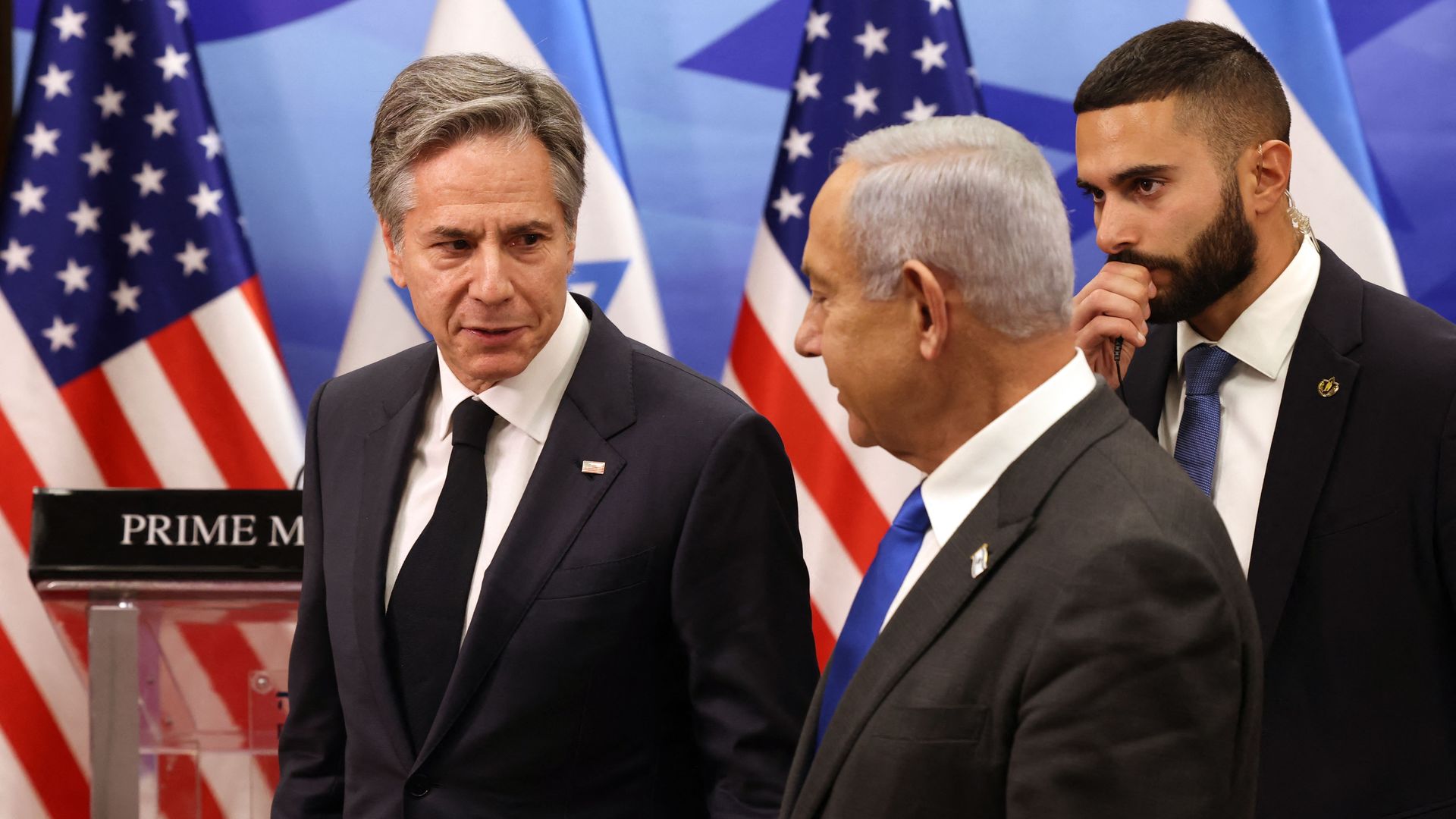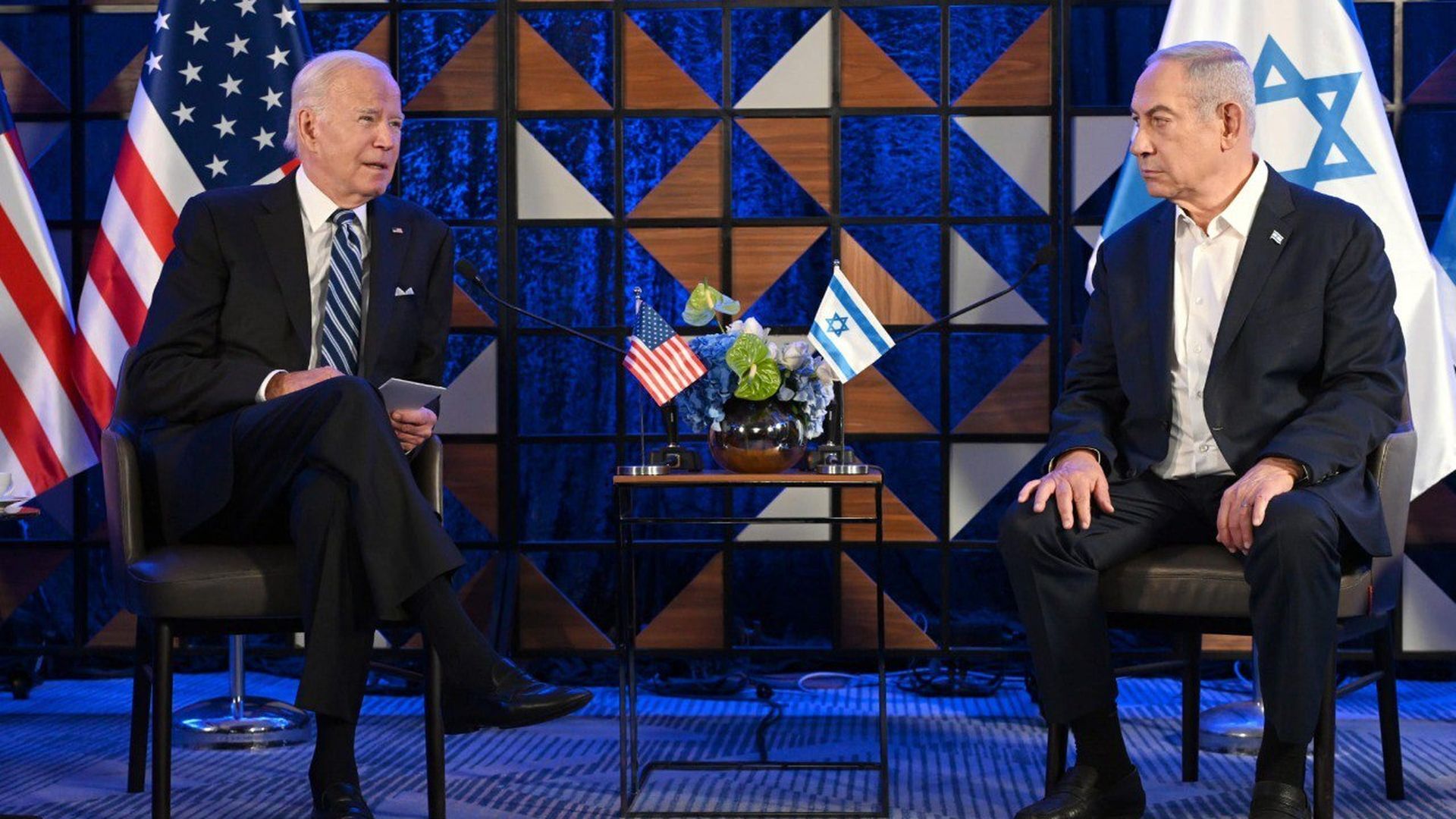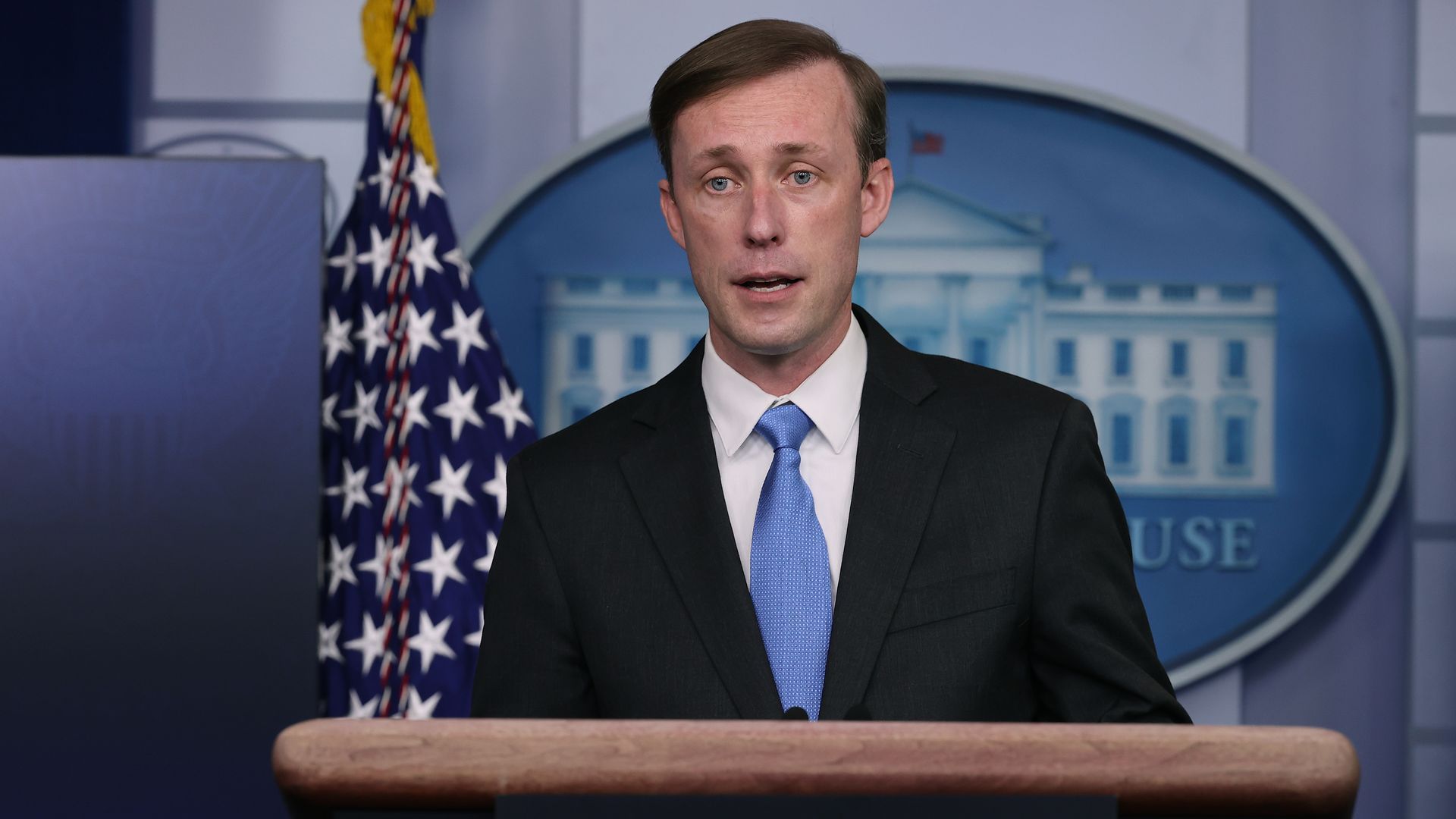Bibi Tells Secretary of State Blinken, No Way to Recognize Palestine
 |
Secretary of State Tony Blinken and Israeli Prime Minister Benjamin Netanyahu. Photo: Ronaldo Schemidt/AFP via Getty Images
Israeli Prime Minister Benjamin Netanyahu told Secretary of State Tony Blinken last week that a direct or indirect U.S. recognition of a Palestinian state "would be a prize for those who planned and orchestrated the Oct. 7 massacre," two Israeli officials told Axios.
Why it matters: Such recognition by the U.S. would change decades of American policy that advocated for a Palestinian state only as a result of direct negotiations with Israel. The Israeli government is increasingly concerned if that happens, it would put more pressure on Israel to accept a Palestinian state.
- Ultranationalist ministers in Netanyahu's cabinet are pushing to preempt any such U.S. move by passing a cabinet resolution that would officially determine that Israel's policy opposes a Palestinian state — a step the Israeli prime minister has refrained from taking so far.
Driving the news: The U.S. post-war strategy has so far centered on linking possible normalization between Israel and Saudi Arabia to the creation of an "irreversible" creation of a pathway to a Palestinian state.
- At the same time, some in the Biden administration are also now thinking recognition of a Palestinian state should possibly be the first step in negotiations to resolve the Israeli-Palestinian conflict instead of the last, the senior U.S. official previously told Axios.
Blinken recently asked the State Department to conduct a review and present policy options on possible U.S. and international recognition of a Palestinian state after the war in Gaza, Axios reported two weeks ago.
- The State Department stressed there has been no change in policy and said the review was part of an ongoing process of looking into different policy options.
There are several options for U.S. action on this issue, including:
- Bilaterally recognizing the state of Palestine.
- Not using its veto to block the UN Security Council from admitting Palestine as a full UN member state.
- Encouraging other countries to recognize Palestine.
Behind the scenes: Netanyahu raised the possible U.S. recognition of the state of Palestine in his private meeting with Blinken in Jerusalem last week, expressing dismay that the U.S. was even considering such an option, according to the Israeli officials.
- Netanyahu made clear to Blinken that such a U.S. move would be "an own goal" and would harm any effort by the Biden administration to broaden the circle of peace and normalization in the region, one Israeli official said.
- "It will be a prize to the Palestinians for doing Oct. 7," Netanyahu told Blinken, per the Israeli officials.
- The Israeli Prime Minister's Office and the State Department declined to comment.
The issue also came up during a meeting between Netanyahu's national security adviser, Tzachi Hanegbi, and Palestinian minister Hussein al-Sheikh who is one of President Mahmoud Abbas' closest confidants.
- Hanegbi made it clear to al-Sheikh "there is no chance this war will end with a two-state solution," a senior Israeli official told Axios.
- He also stressed that Israel will not change a decades-long policy now and give a prize to the perpetrators of Oct. 7, the Israeli official said.
- "It is not only the Likud government. There was no Palestinian state when we had other governments in Israel so you need to be realistic and put forward more practical goals for the day after the war," Hanegbi told al-Sheikh.
Go deeper: Biden "running out" of patience with Bibi as Gaza war hits 100 days
Biden tells Bibi Israel may have to release more Palestinian prisoners than in last deal
 |
President Biden sits with Israeli Prime Minister Benjamin Netanyahu at the start of the Israeli war cabinet meeting in Tel Aviv on Oct. 18, 2023. Photo: Miriam Alster/AFP via Getty Images
President Biden told Israeli Prime Minister Benjamin Netanyahu on Sunday that in any new hostage deal, Israel will may have to release more Palestinian prisoners for each freed hostage than it did in the previous pause in Gaza fighting, two U.S. and Israeli officials said.
Why it matters: The number of Palestinian prisoners Hamas is demanding Israel release as part of a new hostage deal is the main sticking point in the indirect talks between Hamas and IsraShare on facebook (opens in new window)Share on twitter (opens in new window)
Share on linkedin (opens in new window)

Israeli Prime Minister Benjamin Netanyahu on March 16, 2023. Photo: Sean Gallup/Getty Images
Israeli Prime Minister Benjamin Netanyahu did not approve sending an Israeli delegation to Cairo on Thursday for follow-up talks over a possible hostage deal, two Israeli officials said.
Why it matters: Proposing follow-up talks appears to be an attempt by Egyptian and Qatari mediators to make progress on issues unrelated to the main sticking point in the talks — the number of prisoners Hamas wants to be released — in order to create continuity and momentum for the negotiations.
Sullivan: We expect Israel to adhere to commitment to get U.S.-funded flour to Gaza
 |
White House Press national security adviser Jake Sullivan in February 2021. Photo: Chip Somodevilla/Getty Images
The Biden administration expects "Israel to follow through on its commitment" to get U.S.-funded flour into Gaza, White House national security adviser Jake Sullivan said on Wednesday after Axios reported Israel's ultranationalist finance minister is blocking the transfer of the shipment.
Why it matters: The delay of the shipment has added to President Biden's frustration with the Israeli government, U.S. officials told Axios.

Comments